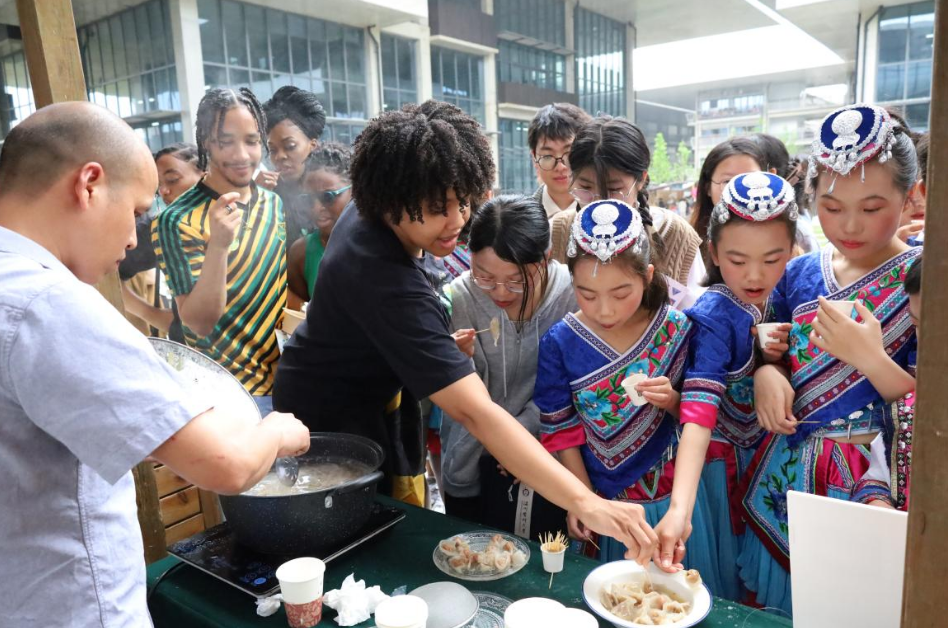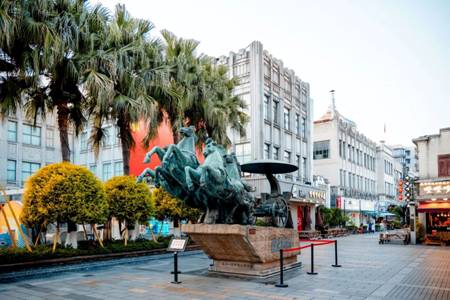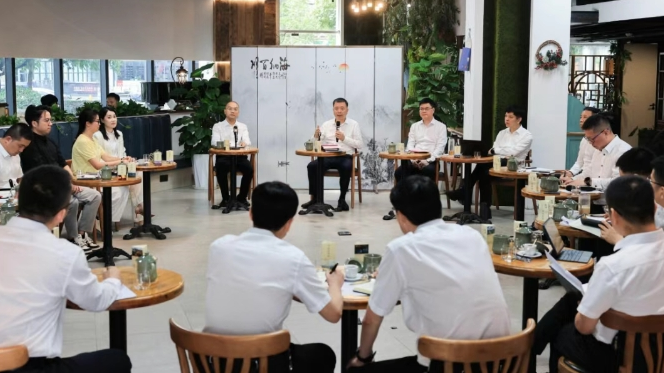Cangnan: A TCM Hub Uniting Ethnic Economies
时间:2025-08-05 15:05:15 来源 : DiscoverWenzhou 作者 : Xie Zhongyun Ying Zhongbiao
The traditional Chinese medicine (TCM) industry is an integral part of China's rich cultural heritage. Entrepreneurs from Cangnan are leveraging TCM to connect ethnic regions with the broader national market, fostering closer economic ties and integration across different regions.

Ethnic-Style Traditional Chinese Medicine Museum. Photograph provided by TideNews
Cangnan's Ginseng and Antler Market, located in Lingxi, is one of the largest hubs for ginseng, antler, and cordyceps transactions in China. Despite not being a production area, it has become a significant trading center with an annual turnover exceeding RMB 4 billion, serving both domestic and international markets. One of the leading enterprises in Cangnan, Changshenglaohao, exemplifies this trend. The company invested RMB 40 million to establish a unique ethnic-themed TCM museum. By utilizing the distinct natural ecosystems and authentic medicinal resources of ethnic regions, Changshenglaohao has established standardized and large-scale herbal medicine cultivation bases.
These include ginseng planting bases in Huanren Manchu Autonomous County in Liaoning Province, goji berry planting bases in Zhongwei City, Ningxia, and mulberry mushroom cultivation bases in Yanbian Korean Autonomous Prefecture, Jilin Province. Spanning over 1,500 acres, these bases have created more than 500 local jobs and generated approximately RMB 120 million in trade. In Tibet's Nagqu, Changshenglaohao has set up five Cordyceps collection points. In Motuo County, they collaborate with village cooperatives to regularly purchase Polygonatum. In Aksu, Xinjiang, they maintain long-term walnut purchasing stations, and in Shuangyang District, Changchun, they have established antler and other product collection points, with annual purchases exceeding RMB 6 million.
Wu Xiyong, head of Changshenglaohao, stated,"During our business growth and industrial transformation, we strive to strengthen cooperation with various ethnic groups. Mutual respect and win-win outcomes are our goals. Through interactions and exchanges with different ethnic groups, we achieve sustainable development."
Entrepreneurs like Wu Xiyong are not alone in Cangnan. Many others engage in trade with diverse ethnic regions, bringing precious medicinal materials such as Tibetan Cordyceps to the national market, promoting wild ginseng from Jilin to the eastern coast, and introducing Ningxia goji berries into households nationwide. These activities expand the TCM industry while deepening friendships and mutual understanding among different ethnic groups. This practice embodies the true essence of the Chinese nation community consciousness.(Xie Zhongyun Ying Zhongbiao)


